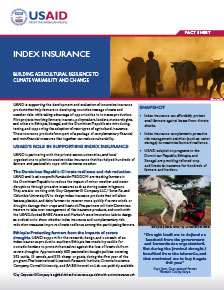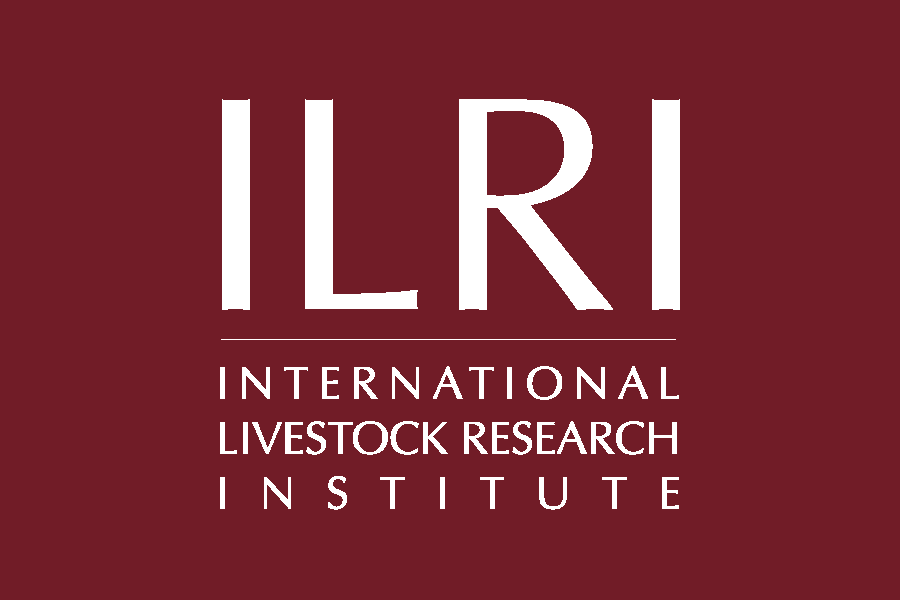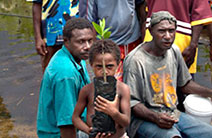Speeches Shim
USAID supports partners developing and testing weather-index insurance. Index insurance is a tool that can help populations whose livelihoods depend on the weather—such as small farmers and pastoralist herders—to manage changing climate risks.
In Ethiopia, Senegal, and the Dominican Republic, USAID is working with local insurance companies to help them build the expertise to design and market affordable, weather-based insurance that can reach rural households. USAID pilot projects are exploring innovative ways to generate the data insurers need, for instance, by using satellite data to identify drought situations in places with few weather stations.
We also work with partners and farmers on the ground to highlight risk reduction measures that complement insurance, and to emphasize the importance of fitting insurance into a broader risk management strategy. And we are conducting impact evaluations to help identify exactly where and how insurance makes a difference for food security and climate resilience.
Climate Adaptation Fact Sheet: Index Insurance ![]() (pdf - 803K)
(pdf - 803K)
In Ethiopia, USAID is working with the International Livestock Research Institute (ILRI) on a micro-insurance product for poor pastoralists facing increased drought risk.
In Senegal, USAID is supporting the World Food Program and its partners in implementing the Rural Resilience Initiative. This initiative is testing the effectiveness of a packaged approach, combining risk reduction measures with savings, credit and insurance to promote climate adaptation and food security.
Learn more about USAID’s insurance and climate change adaptation work through the websites and publications below.





Comment
Make a general inquiry or suggest an improvement.